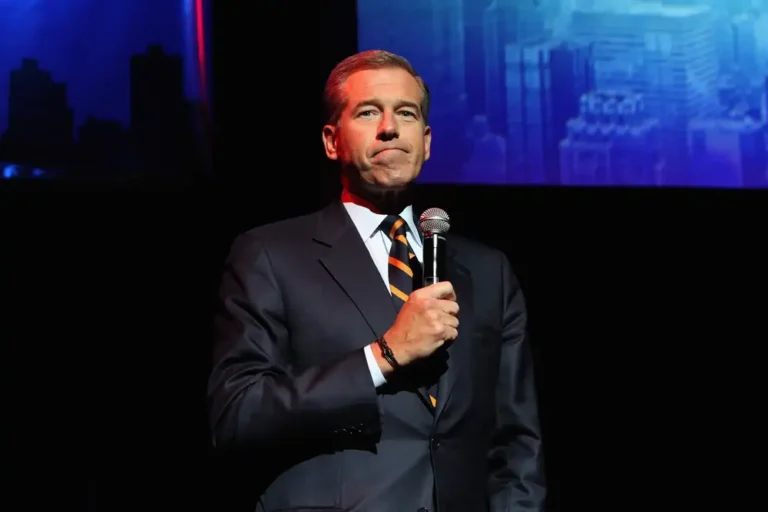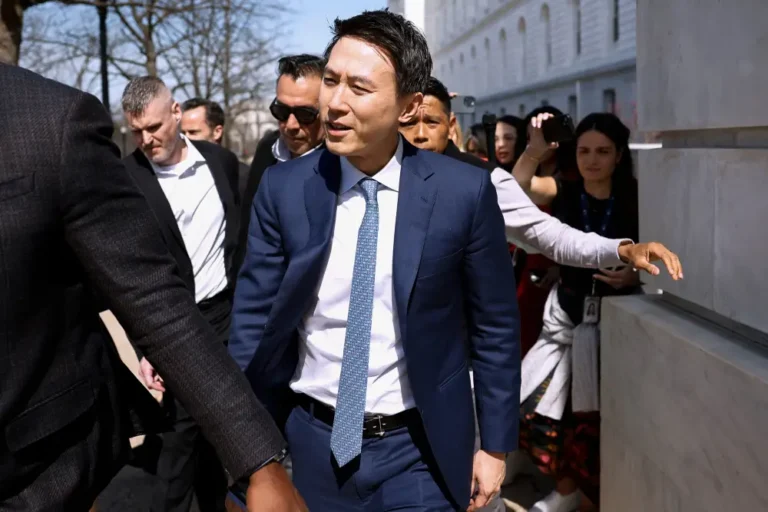‘Gladiator II’ fails as a historical epic, but not because of Paul Mescal’s absolutely feral performance
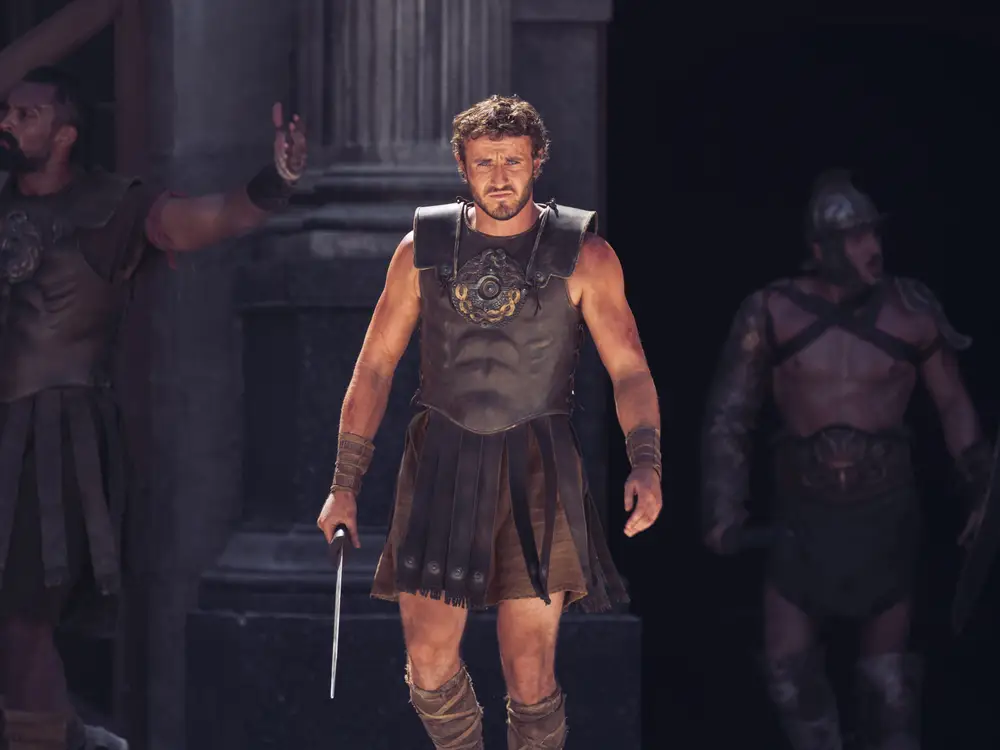
Paul Mescal as Lucius in “Gladiator II.”
“Gladiator II” is a messy sequel to Ridley Scott’s Roman epic — but what it lacks in narrative connective tissue, it makes up for in spectacle.
After all, aren’t we here to be entertained? With a cast led by Paul Mescal in his first blockbuster leading role, “Gladiator II” delivers on the action, and should definitely be seen on the biggest screen you can find. Just don’t worry too much about the narrative — or the historical details.
The sequel, directed by Scott, picks up approximately a decade and a half after the death of Marcus Aurelius (Richard Harris), the Roman emperor who dreamed of a better empire before being killed by his son Commodus (Joaquin Phoenix). Commodus was eventually taken down by Roman general-cum-gladiator Maximus Decimus Meridius (Russell Crowe), who also died of his wounds in the battle at the end of the original 2000 film.
By the time “Gladiator II” picks up, not much has changed. Rome is ever-expanding, characterized by the hunger and decadence of its twin rulers, Geta (Joseph Quinn) and Caracalla (Fred Hechinger). General Marcus Acacius (Pedro Pascal) has just conquered the African territory Numidia — unknowingly, he brings an unwilling (and initially unknown) prodigal son back with him.
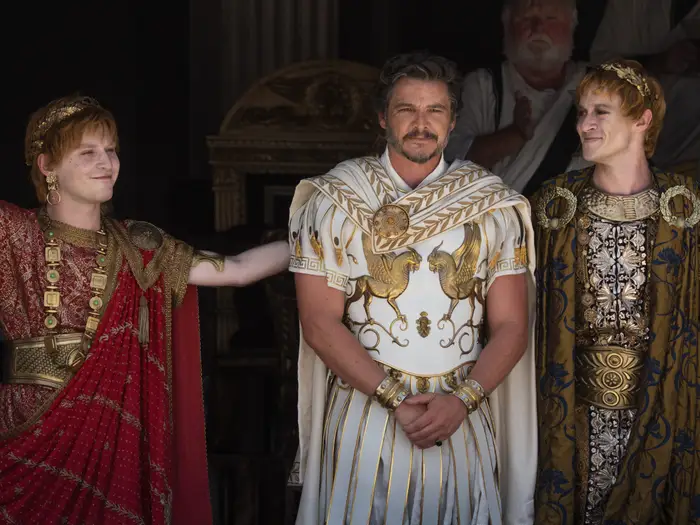
Fred Hechinger, Pedro Pascal, and Joseph Quin as Caracalla, Acacius, and Geta in “Gladiator II.”
That’s Lucius (Mescal), the son of Marcus Aurelius’ daughter Lucilla (Connie Nielsen, reprising her role from the first film), and Maximus himself, who has been living a quiet life in hiding since his mother spirited him away from Rome. Despite growing up in Rome, Lucius has little desire to return. Unfortunately, like his father, he’s been taken as a slave following the death of his wife, picked up by the calculating Macrinus (Denzel Washington) as a fighter under a false name, and given the chance to slay his way to freedom in the Colosseum.
“Gladiator II” does its best to juggle its many contentious relationships, and the broader conflicts that they represent in the film, to middling success. Lucius chafes against Rome’s carnivorous nature represented in Acacius, the depravity modeled by its twin emperors, and its social order embodied in Macrinus, a former slave who has clawed his way into power. Pascal’s character, in particular, feels half-baked both as a person and as a symbol for the Rome Lucius must come to love and defeat — it’s the actor’s performance that drives any buy-in.
Some important dynamics, like the one between Lucius and his mother Lucilla, suffer amid rapid pacing. And Washington’s Macrinus, though carried by the actor’s intensely captivating presence, can be difficult to parse. Some of that is certainly by design, and Washington draws out Macrinus’ calculating, jovial, and menacing facets with equal aplomb. However, it makes it difficult to buy into Macrinus’ entire ethos.
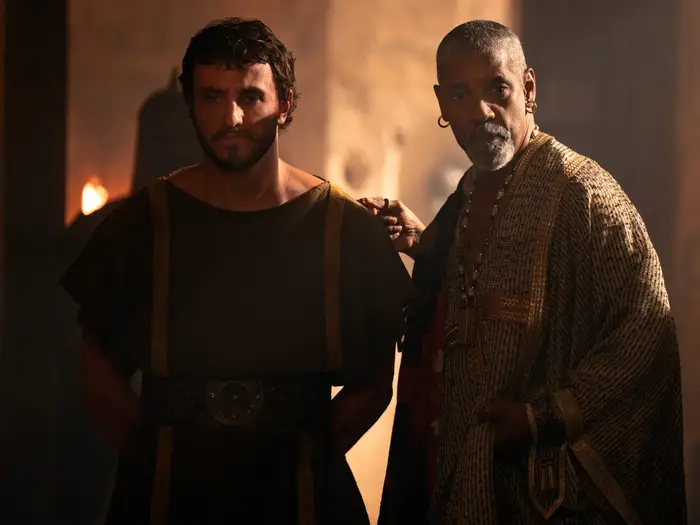
Paul Mescal and Denzel Washington as Lucius and Macrinus in “Gladiator II.”
What does work well are the fights, and rest assured that there are plenty of them.
“Gladiator II” is big, bloody, and vicious in its combat, and rarely holds back when it can cut deeper. Scott brings his sensibility for scale to gigantic battles, like the naval conflict that kicks off the film’s action. “Gladiator II” shines best, though, in tightly choreographed sequences, like the battle between Acacius and Lucius teased in trailers, or more bombastic ones, like Lucius matching a feral monkey’s freak in hand-to-paw combat. Leave your historical pedantry at the door for the much-decried Colosseum sharks.
Sillier combat experiences aside, the film derives most of its levity from Quinn and Hechinger’s obscene twin emperors and Dundus, Caracalla’s pet monkey. In particular, “Gladiator II” should serve as an excellent argument to keep casting Quinn — previously best known as “Stranger Things” breakout heartthrob Eddie Munson — in the most unhinged roles humanly possible, because he steals every single scene.
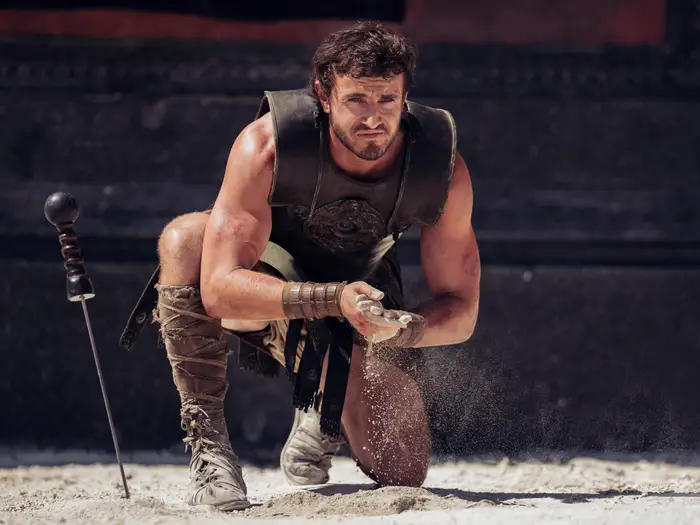
Paul Mescal as Lucius in “Gladiator II.”
The biggest winner is Mescal, who proves with more than a few brooding glances and swings of the sword that he has the chops to carry a blockbuster. “Gladiator II” isn’t shy about drawing blatant parallels between Lucius and Maximus’ journeys. Mescal’s performance, however, is grounded and more vindictive than Crowe’s in the first film, and tips the balance toward Lucius feeling more like a successor to Maximus’ mission than a carbon copy.
Ultimately, “Gladiator II” works better as an action flick than a focused historical drama. If you’re here to watch Paul Mescal and Pedro Pascal just absolutely go at it in the ring — or Denzel Washington gossip and plot his way through Roman court — you’re in the right place. Just don’t read too much into the broader narrative, and you’ll be fine.





